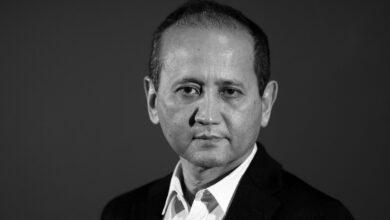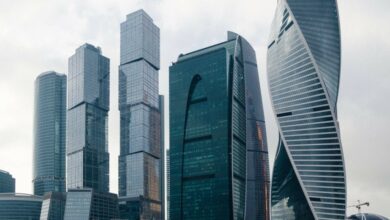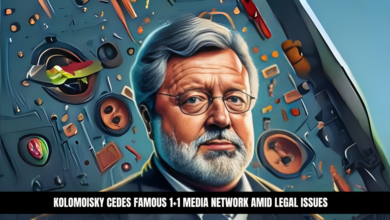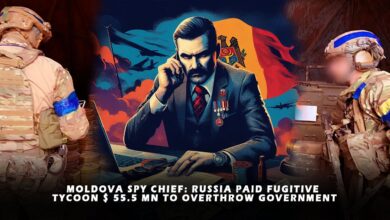Squeezed by sanctions, some oligarchs are heading back to Russia
Squeezed by Sanctions: A Closer Look at Oligarchs' Repatriation to Russia
Squeezed by sanctions Russian oligarchs Mikhail Fridman and Petr Aven are two prominent examples of how they used their money to break away from President Vladimir Putin’s administration and participate in the international economy. Their fortunes are now, though, completely turning around.
Deeply disgruntled with his situation as an embargoed entrepreneur in the UK after Putin’s invasion of Ukraine, Mikhail Fridman left London for Moscow via Israel. It may be necessary for Petr Aven to return to Russia from Latvia, since officials there are contemplating the cancellation of his passport.
Both the Russian millionaires who prospered under Putin’s leadership and others were significantly impacted by Russia’s invasion of Ukraine. This change happened as a result of the heavy sanctions put in place by the US and Europe to isolate the head of the Kremlin and destroy his economy. Even while these sanctions haven’t really succeeded in achieving these goals, they have damaged the reputations of many affluent Russian expatriates who have either remained silent or avoided publicly denouncing Putin for his wartime activities.
The terrible loss and destruction brought about by Putin’s military activities in Ukraine since the invasion in February 2022 dwarf the personal repercussions that they experience, even though the sanctions have made their quality of life worse and have kept them outside of Western corporate circles. Russia’s billionaires still have enormous fortune, even when their assets overseas are frozen.
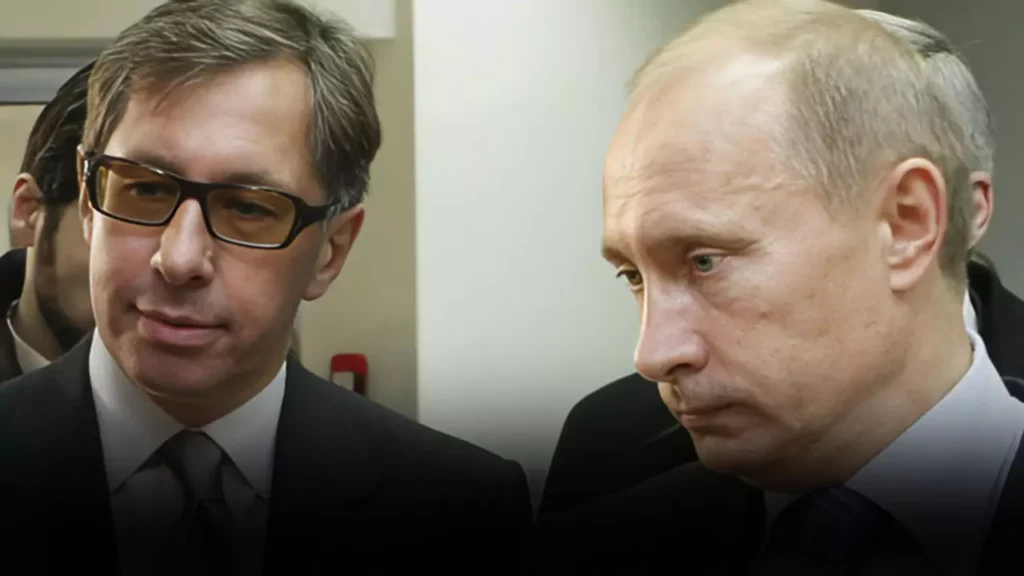
Mikhail Fridman and Petr Aven left Moscow for London the day after the Russian military invaded Ukraine. The Ukrainian Mikhail Fridman wrote a letter to the staff of their investment company LetterOne, stating that “war should never be the solution” and that he was against the conflict, even calling it a “tragedy.” However, he did not specifically criticize Putin in this letter.
Mikhail Fridman’s charitable foundation, the Genesis Philanthropy Group, said that it would donate $10 million to Jewish organizations that support refugees from Ukraine.
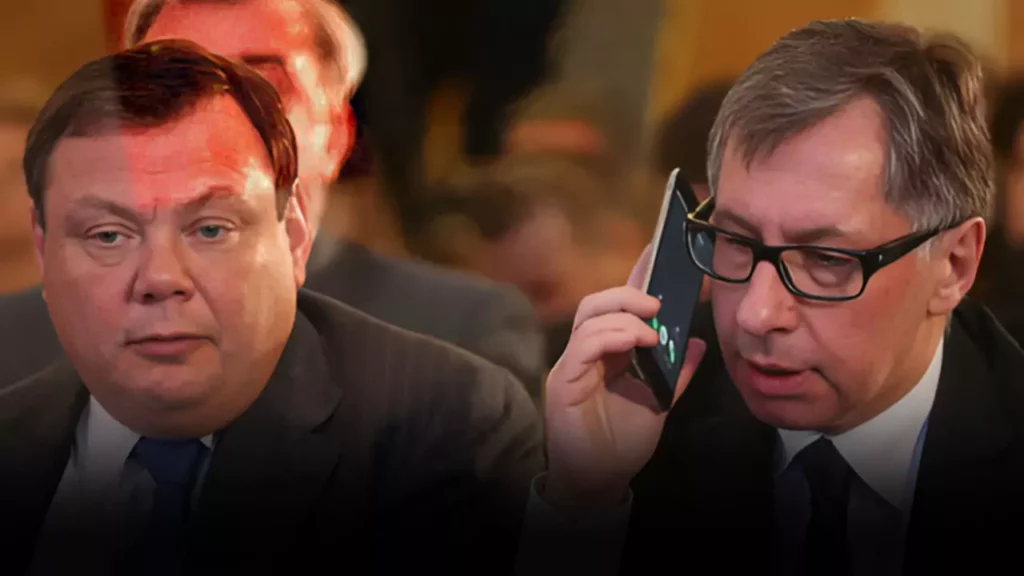
Their attempts were all in vain. Soon after the invasion, the European Union placed sanctions on Mikhail Fridman and Petr Aven. On the same day in March 2022, the UK placed sanctions on German Khan and Alexey Kuzmichev of LetterOne and Alfa Group, who were associated with the individuals.
Petr Aven was described by the European Union as “one of Vladimir Putin’s closest oligarchs,” Fridman as an ally of the president’s inner circle, and Khan and Kuzmichev as two of “the most influential individuals in Russia.” They have all four challenged these designations in court, but thus far they have not been successful.
Khan departed London shortly after the invasion and went back to Moscow. The Paris-based Kuzmichev was detained on Monday to be questioned in France on allegations of tax evasion, money laundering, and breaking international sanctions. His home was also searched as part of the preliminary inquiry.
Also Read :
- Benjamin Netanyahu rejects calls for ceasefire as Israel deepens attack on Gaza City 2023
- Sheikh Mansour Russia Connection: UK Government in the Hot Seat
- Case Against Mikhail Fridman: Alleged Financing of Russia’s Military-Industrial Complex
- Russian oligarch Alexei Kuzmichev Detained By French Police In Tax And Sanctions Probe
- Russian Oligarch’s Assets Seized in Latest Ukraine Aid Package Worth Millions
Not welcome in Russia either
The speaker of Russia’s lower house of parliament addressed members the day after it was discovered that Fridman was in Moscow, proposing that those who had fled the nation and expressed disapproval from overseas be sent to remote prison camps or made to labor in mines. Putin’s close ally Vyacheslav Volodin stressed that people of that kind were not required in Russia and that they had to realize that.
In response to a query on the return of Fridman and other people who had been overseas, Putin told reporters on October 13 that those who had broken Russian laws would have to pay a price.
“If in the minds of the overwhelming majority — not some part of some elite but the overwhelming majority of people — a person behaved immorally towards Russia, then he or she will certainly feel it upon returning here,” Putin went on. “How could it be otherwise?”
When Fridman signed a $6.2 billion deal with BP to become TNK-BP, Russia’s third-largest oil producer, twenty years ago, there was far more hope and excitement than there is now. Putin and UK Prime Minister Tony Blair personally endorsed this arrangement, which at the time was the largest foreign investment in Russia. They both honored the occasion in 2003 when the Russian president paid a state visit to London.
TNK-BP went bankrupt due to disagreements over operational control, and over ten years later, the Russian state-owned Rosneft purchased the company for $55 billion. The $14 billion that Fridman, Petr Aven, and their allies acquired from the sale served as a springboard for their ascent from the early days of Russia’s unstable capitalism to membership in the European economic elite.
Of the initial oligarchs who helped finance Boris Yeltsin’s triumphant re-election as president in 1996 against his Communist opponent, only three remain in active business: Fridman, Aven, and another billionaire, Vladimir Potanin, who holds the largest stake in MMC Norilsk Nickel PJSC. Petr Aven adamantly disputes that their quick growth of fortune was due to political favors.
The oligarch way
After Putin took government in 2000 and jailed one of their colleagues, Mikhail Khodorkovsky, for supporting opposition parties, Russia’s affluent citizens survived by staying out of politics.
Several of these billionaires said they had no influence on the president’s decisions in the face of international penalties. Advocating against Putin’s activities in the invasion of Ukraine at the same time put them and their loved ones in grave danger.
Banned billionaire Oleg Tinkov had denounced Russia’s “insane war” in April of the previous year and had shortly after sold Potanin his family’s share in the digital bank he had founded. In July, Tinkov—who afterwards gave up his Russian citizenship—was taken from the UK’s list of individuals subject to sanctions.
Fridman had no intention of going back to Russia at first. Declaring that it was “impossible to live in the UK under sanctions,” he left London in September and shortly after the Hamas attack in Israel on October 7th, which started the Gaza crisis, he proceeded to Moscow.
“I was given no choice, I was squeezed out,” he said by phone about his decision to leave the UK. “Today, the fact that we invested money in England looks like a colossal mistake.”
A London court denied his requests for payments for phone lines, TV equipment, staff costs, and a £30,000 monthly management fee to maintain his north London property on October 27, siding with the government. The court found that Fridman’s prior lifestyle, which he had before the sanctions, was intended to be maintained by these costs, not his basic necessities.
It’s clear that the 59-year-old Fridman was not thrilled with the limitations placed upon him. After years of associating with powerful and wealthy people in Britain, he did not appear to be able to accept his new status.
“I have a huge house and garden and the British authorities didn’t allow me to hire either a cleaner or a gardener,” he said. “I had to be at home every night and check in at a police station twice a week. I also couldn’t use my car and had to use public transport, and my house is far from the metro. I was restricted even in paying for medical services!”
UK getting tougher
Petr Aven is 68 years old, a citizen of Latvia, and the owner of property in that country. He moved there from the United States after leaving the United Kingdom last year, when authorities began looking into possible sanctions violations in the money transfers intended for his UK living expenses and maintenance.
Approximately thirty officers searched his property in May 2022; he called this “psychological pressure.” During a three-hour police interrogation in July of the same year at London’s airport, Petr Aven said that one of the questions asked was why he and his associates had invested billions of dollars in Western nations and set up their corporate headquarters in England.
“By mistake!” Petr Aven said he retorted.
As Yevgeny Chichvarkin, a London-based critic of Putin, notes, Fridman and Petr Aven’s riches is a source of general frustration, which has made them easy targets. According to Chichvarkin, who co-founded the Russian mobile phone retailer Euroset Holding NV and fled Moscow in 2008 as a result of a criminal investigation that is now closed, there is a belief that “big money is correlated with power.” He contends, however, that the penalties placed on them are mostly symbolic and have no practical bearing on the struggle against Putin. They might even inadvertently increase support for the Russian president.
Fridman and his three partners made the decision to leave LetterOne’s board in response to the penalties. The corporation, which is headquartered in Luxembourg, reported a roughly one-third decline in net assets to $18.9 billion in its 2022 annual report. The difficult environment brought on by the war, the sanctions, and general economic circumstances is blamed for this decrease.
During their time as undergraduates in Moscow, Fridman, Khan, and Kuzmichev got to know each other and started making money by selling their fellow students the rare theater tickets. They founded a trade business in 1989, just as the Soviet Union was about to collapse, with a focus on selling various consumer products and electronics.
They founded Alfa Bank in 1990, and it is currently Russia’s biggest private lender. Petr Aven Aven joined them in 1994, not long after resigning from his role as Minister of Foreign Economic Relations in Yeltsin’s fledgling reformer-led administration, which was trying to revitalize the flagging post-Soviet economy.
About 400,000 people are employed by their Alfa-Group holding company, which presently has stakes in a variety of businesses, including supermarkets and banks, throughout Russia and other former Soviet states.
Co-owned by Fridman and Petr Aven Aven, Sense Bank JSC was nationalized by Ukraine in July. Authorities in Kiev opened a criminal investigation into Fridman in August on the grounds that they believed he was part of a gang that organized fraud, forgery, and tax evasion. They also mentioned that they might try to get him extradited from the United Kingdom.
More than a year after the UK and the EU intervened, the US Treasury placed sanctions on Khan, Kuzmichev, Aven, and Fridman in the same month. About six weeks after Putin gave the order to invade Ukraine, in April of the previous year, the US had imposed full blocking sanctions on Alfa Bank and other notable Russian institutions.
Prior to this, Fridman and Aven had declared their desire to sell their shares in Alfa Bank, which they retained through a holding company with headquarters in Luxembourg. “Ten months ago, we initiated the process of divesting from Russian assets, but we are still awaiting approvals from European regulators,” Fridman said, appearing less certain now. We shall reevaluate the benefits and drawbacks when and if we obtain them.”
He had previously told Bloomberg that, after the war is over, he intends to mostly reside in Israel and views his return to Russia as a temporary measure.
Similar to Fridman, Aven finds the penalties imposed on him over the conflict to be perplexing. He feels that Western politicians and businesspeople have just as much, if not more, of a role in fortifying the current Russian regime than do the so-called Russian billionaires.





